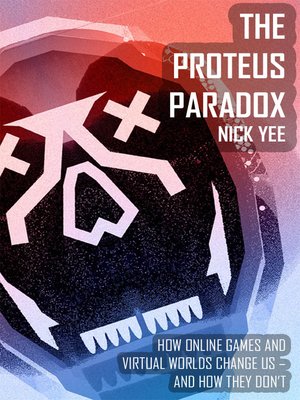The Proteus Paradox
ebook ∣ How Online Games and Virtual Worlds Change Us—And How They Don't
By Nick Yee

Sign up to save your library
With an OverDrive account, you can save your favorite libraries for at-a-glance information about availability. Find out more about OverDrive accounts.
Find this title in Libby, the library reading app by OverDrive.



Search for a digital library with this title
Title found at these libraries:
| Library Name | Distance |
|---|---|
| Loading... |
A surprising assessment of the ways that virtual worlds are entangled with human psychology
Proteus, the mythical sea god who could alter his appearance at will, embodies one of the promises of online games: the ability to reinvent oneself. Yet inhabitants of virtual worlds rarely achieve this liberty, game researcher Nick Yee contends. Though online games evoke freedom and escapism, Yee shows that virtual spaces perpetuate social norms and stereotypes from the offline world, transform play into labor, and inspire racial scapegoating and superstitious thinking. And the change that does occur is often out of our control and effected by unparalleled—but rarely recognized—tools for controlling what players think and how they behave.
Using player surveys, psychological experiments, and in-game data, Yee breaks down misconceptions about who plays fantasy games and the extent to which the online and offline worlds operate separately. With a wealth of entertaining and provocative examples, he explains what virtual worlds are about and why they matter, not only for entertainment but also for business and education. He uses gaming as a lens through which to examine the pressing question of what it means to be human in a digital world. His thought-provoking book is an invitation to think more deeply about virtual worlds and what they reveal to us about ourselves.







